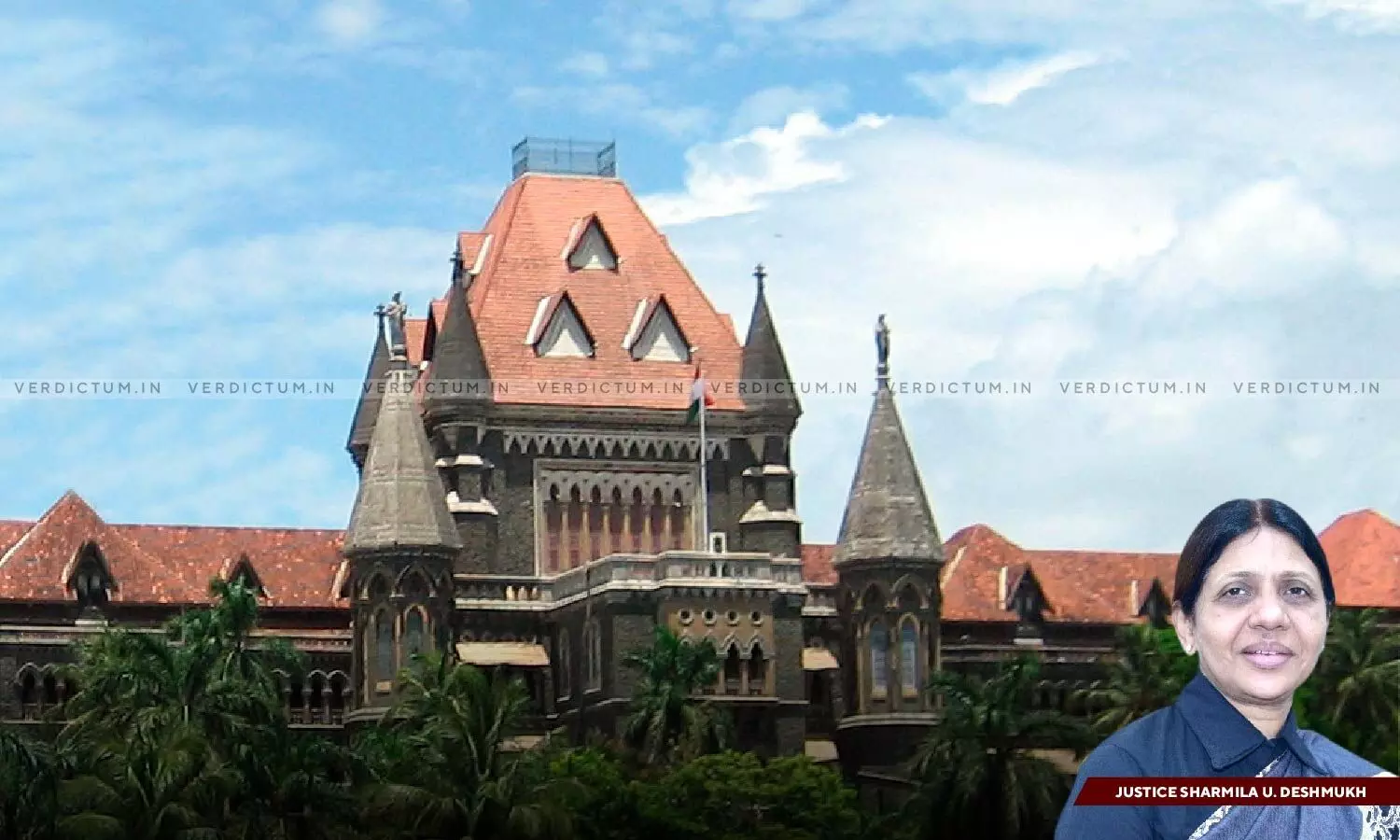
Employer Is Statutorily Mandated To Make Payment Of Liability Irrespective Of Bonafide Dispute Regarding Compensation Amount: Bombay HC
 |
|The Bombay High Court held that the employer is statutorily mandated to make payment of liability irrespective of a bonafide dispute regarding the amount of compensation payable.
The Court held thus in an appeal filed by a company- Air India Charters Ltd against Serbian nationals being legal heirs of the deceased pilot who was working in the said company.
A Single Bench of Justice Sharmila U. Deshmukh observed, “… irrespective of a bonafide dispute as to the amount of compensation payable, the employer is statutorily mandated to make the payment of the admitted liability within period of one month from the date of compensation and the making of payment is not suspended till adjudication of the claim by the Commissioners under Section 19 of EC Act.”
Advocate Firoz Bharucha appeared on behalf of the appellant while Advocate Rishi Ashok appeared on behalf of the respondents.
Brief Facts -
The respondents were Serbian nationals being the family members and dependents of the deceased who was working as a pilot with the appellant-company. The deceased got expired while on duty in the year 2010 in an unfortunate accident which occurred at Mangalore. In 2012, the appellant-company deposited with the office of Labour Commissioner (Workmen’s Compensation) sum of Rs. 3,32,15,589/- along with relevant Form ‘A’ prescribed under Rule 6(1) of the Employees Compensation Act, 1923 (ECA). An application was filed under Section 22 of the ECA and the appellant filed its reply to the same.
The said application was not pressed and subsequently, another application was filed by the respondents, claiming compensation, maximum penalty of 50%, and maximum interest of 12%. The respondents filed the claim through their constituted attorney pleading difficulty in coming to India and after meeting the Constituted Attorney became aware of their rights and then lodged a claim with the appellant by e-mail in 2012. There was no payment of interim compensation and no deposit by the appellant even after 2 years of accident. The appellant filed appeal before the High Court at the instance of the respondents who filed application under Section 22 read with Sections 3, 4, 4A, and 10 of ECA.
The High Court in view of the facts and circumstances of the case, noted, “Reverting to the questions of law framed, the levying of penalty and interest is a legal consequence of failure to deposit the compensation within the period prescribed under Section 4A of the Employees Compensation Act, 1923. I have already held in answer to Point No (iv), that irrespective of a bonafide dispute as to the amount of compensation payable, the employer is statutorily mandated to make the payment of the admitted liability within the period of one month from the date of compensation and the making of payment is not suspended till adjudication of the claim by the Commissioners under Section 19 of EC Act.”
The Court further relied upon the judgment of the Apex Court in the case of Ved Prakash Garg v. Premi Devi (AIR 1997 SC 3854) wherein it was held that the Insurance Company is liable to pay not only the principal amount of compensation payable by the insurer employer but also interest thereon if ordered by the Commissioner to be paid by the employer. It was also held that the Insurance company is liable to meet claim for compensation along with interest as imposed on insurer employer by the Act on conjoint operation of Sections 3 and 4A(3)(a) of the Act.
“The provisions of Section 12(1) of EC Act under which the liability is imposed on principal employer is limited to the payment of compensation which has been defined under Section 2(1)(c) of the EC Act. As held in Ved Prakash Garg (supra), the imposition of interest is statutory elongation of the liability of the employer to make good the principal amount of compensation within permissible time-limit during which interest may not run but otherwise liability of paying interest on delayed compensation will ipso facto follow”, it enunciated.
The Court emphasised that the penalty does not automatically flow from the main liability incurred by the employer and it is only if the Commissioner after giving reasonable opportunity to the employer to show cause takes the view that there is justifiable reason for delay on part of the employer that the penalty would get imposed on him.
“In my view, irrespective of whether the adjudication of compensation is pursuant to inquiry conducted by the Commissioner, the interest is liable to be paid in default of deposit of the admitted liability within period of one month from date of accident. The payment of interest is not suspended till adjudication of the claim by the Commissioners under Section 19 of EC Act. The Appellant is therefore liable to pay interest about which no dispute has been raised by Mr. Bharucha”, it held.
The Court concluded by saying that the admission in the cross examination that the appellant had paid compensation, interest, and penalty to the other employees would not deviate from the legal position that the liability to pay penalty cannot be imposed on the principal employer.
Accordingly, the High Court allowed the appeal.
Cause Title- Air India Charters Ltd. v. Tanja Glusica & Ors. (Neutral Citation: 2024:BHC-AS:42319)
Appearance:
Appellant: Advocates Firoz Bharucha, Jehan Lalkaka, and Faiyaz Khan.
Respondents: Advocates Rishi Ashok and Arya Krishnan.